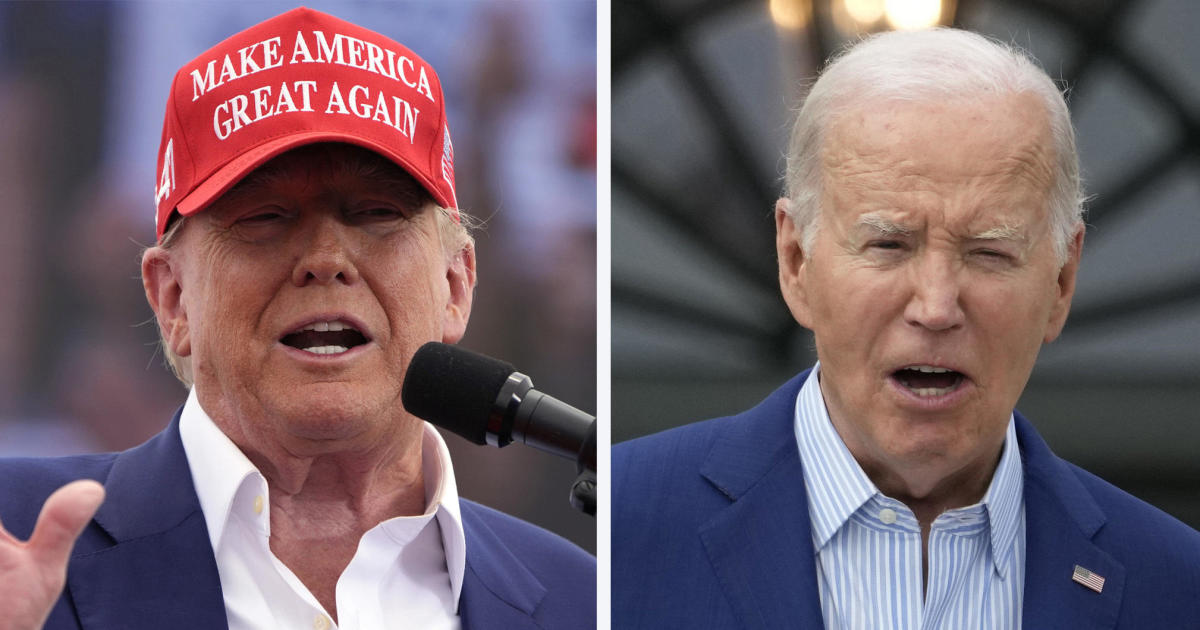Donald Trump and the Republican Party are gearing up for their convention week with a slight edge in the battleground states, giving Trump a favorable position in the Electoral College at the moment. This advantage has remained consistent since the aftermath of the recent debate, where sentiment shifted slightly in Trump’s favor, creating a stable contest.
However, it’s important to note that these polls and estimates were conducted before the shooting incident at a Trump rally in Pennsylvania on Saturday. Despite this event, the state-level estimates are derived from CBS News’ statistical model, based on a survey of voters across seven battleground states.
One key factor contributing to Trump’s lead is the higher percentage of Republicans who express intent to vote compared to Democrats. This disparity in voter turnout could be crucial in determining the outcome of the election.
On the other hand, Joe Biden continues to trail among voters who question his cognitive and mental health abilities. This perception has a significant impact on voter preferences, with those doubting Biden’s capabilities leaning towards Trump.
Despite positive economic indicators, such as news about the U.S. economy, only half of voters believe their financial situation is good. Trump’s appeal to voters who feel their incomes have not kept up with inflation further strengthens his position.
Shifting focus to the national picture, there has been ongoing discussion within the Democratic Party about whether Biden should step aside as the nominee. However, this debate has not significantly influenced public opinion, with almost half of Democrats still supporting Biden.
When asked about a hypothetical Kamala Harris candidacy, Democratic voters express varying opinions based on their views of Biden. Those who believe Harris would perform better against Trump also advocate for Biden’s replacement.
In the Republican camp, there is growing satisfaction with Trump as the nominee, compared to when he first secured the nomination in 2016. The majority of Republicans are excited about Trump’s candidacy, indicating a strong endorsement within the party.
As Trump prepares to announce his running mate, Republican voters are generally satisfied with the potential candidates under consideration. However, there is a lack of enthusiasm among some voters, reflecting the uncertainty typical before a convention.
Notably, Nikki Haley’s exclusion from the list of potential running mates could lead to dissatisfaction among certain factions of the Republican base, particularly supporters of the MAGA movement.
Despite the positive outlook for their nominee, Republicans remain skeptical about the electoral process, with half of the party already considering challenging the results if Trump does not win. This skepticism stems from widespread beliefs within the party that Biden’s election in 2020 was illegitimate and marred by fraud.
Overall, voter engagement with the campaign remains high, with a majority of registered voters actively thinking about the 2024 race. The data and results presented are based on surveys conducted with representative samples of voters in battleground states and nationally, providing insights into the current political landscape.
In conclusion, as the election season progresses, both candidates and their respective parties are navigating complex dynamics that could ultimately shape the outcome in November. The race remains closely contested, with each side seeking to gain an edge in key battleground states and national sentiment.









